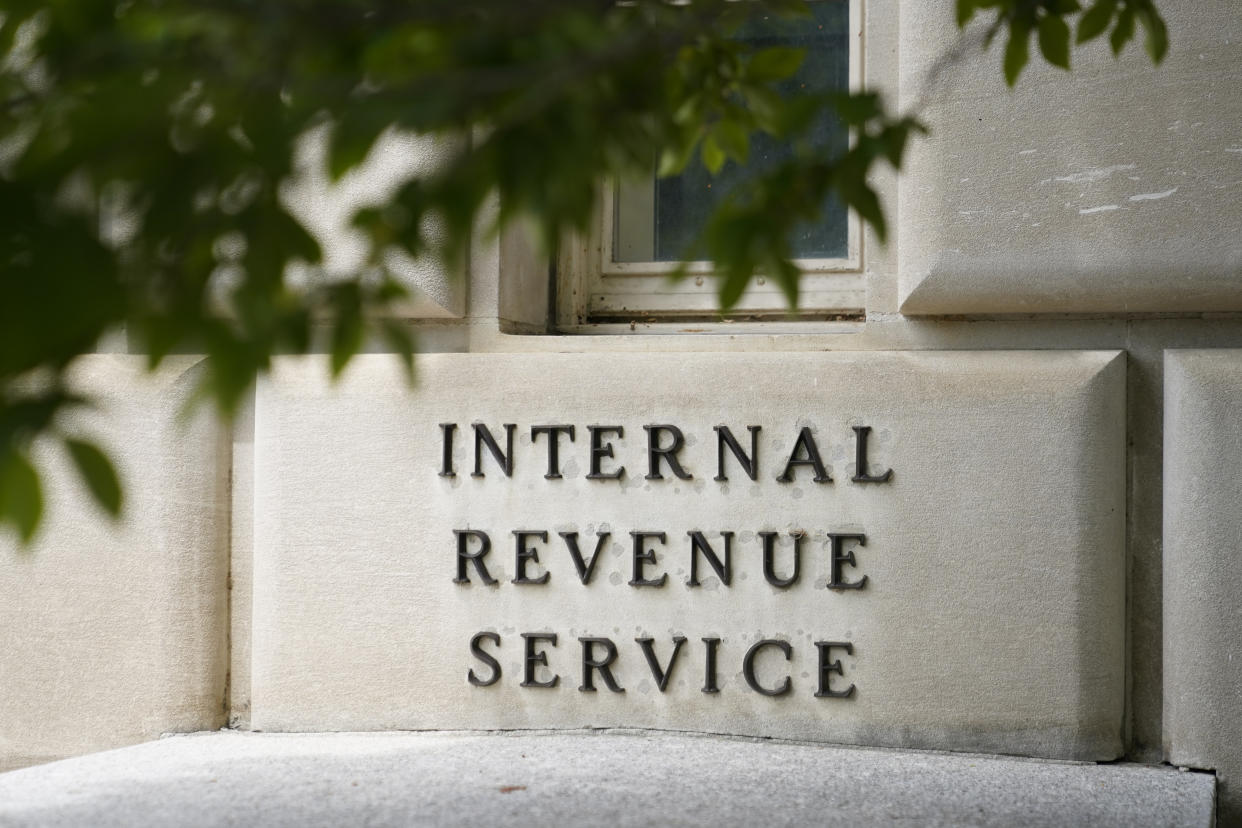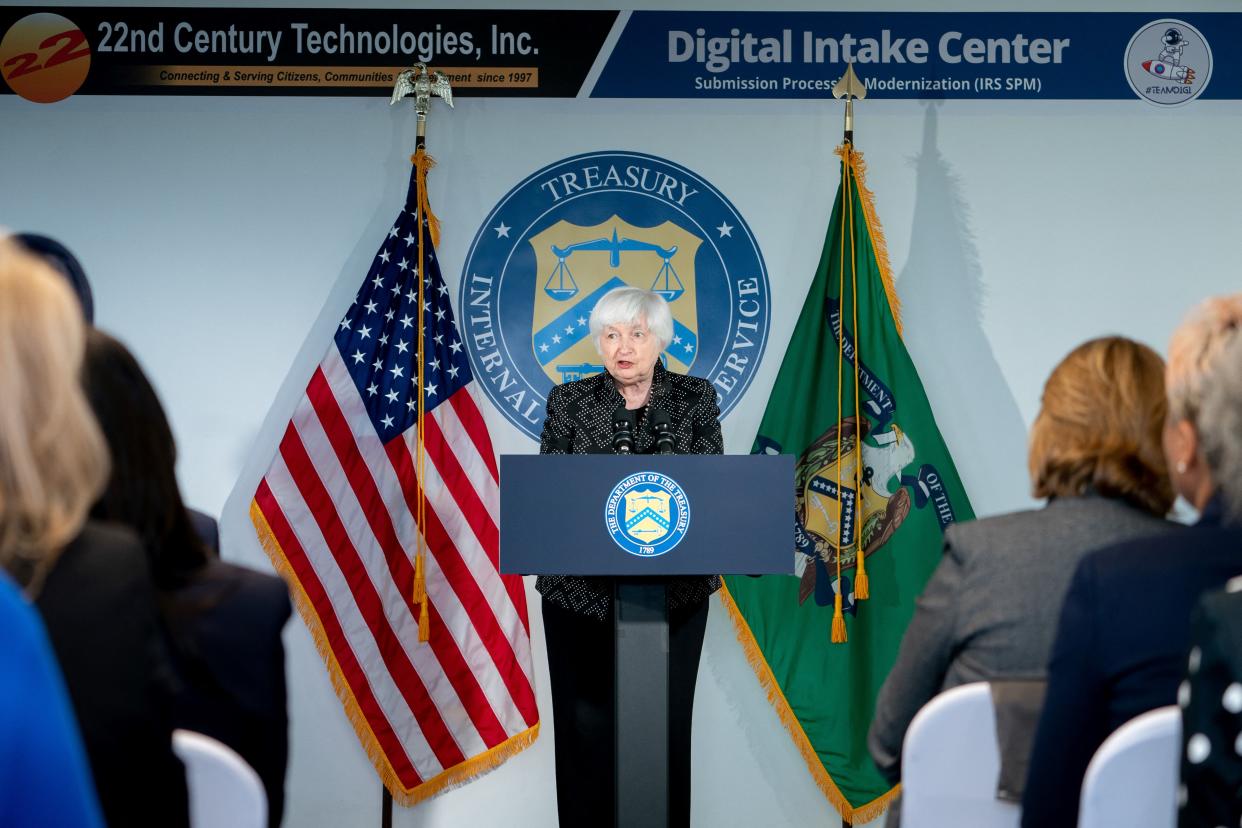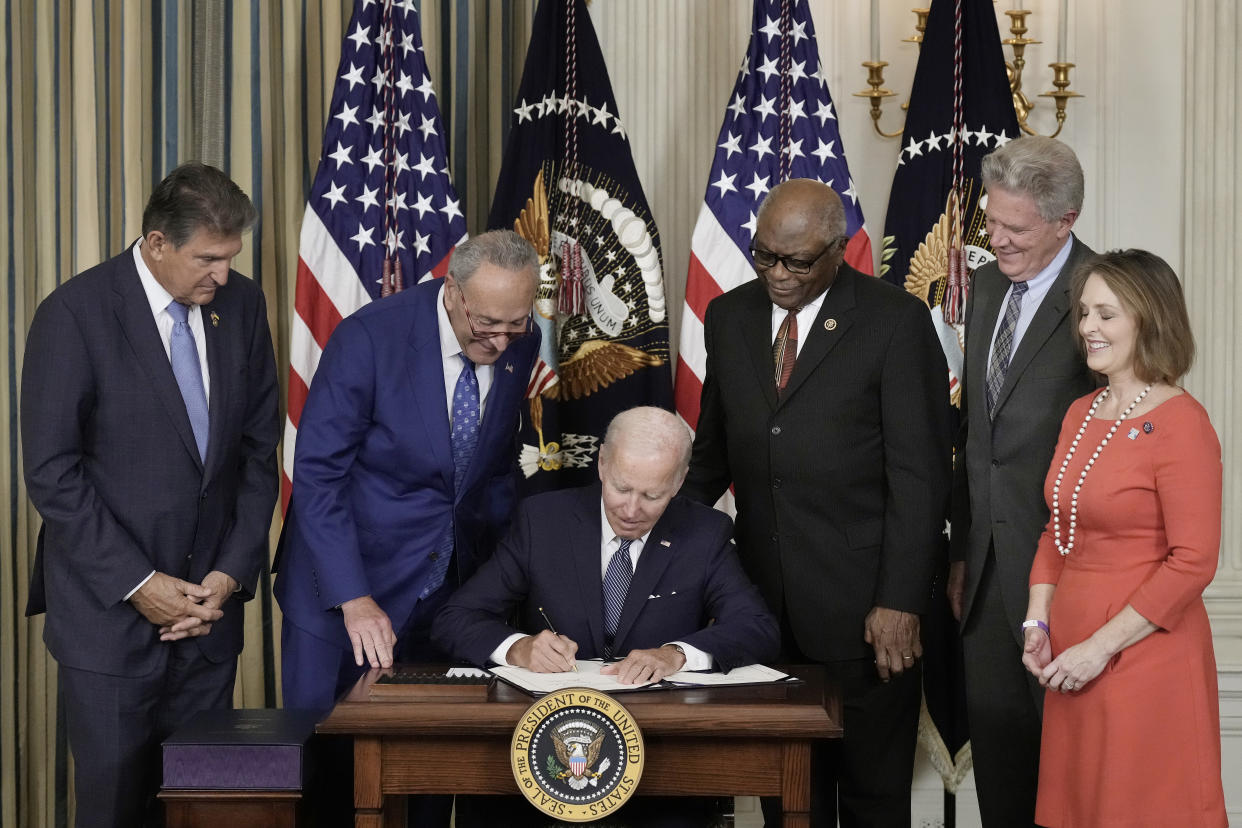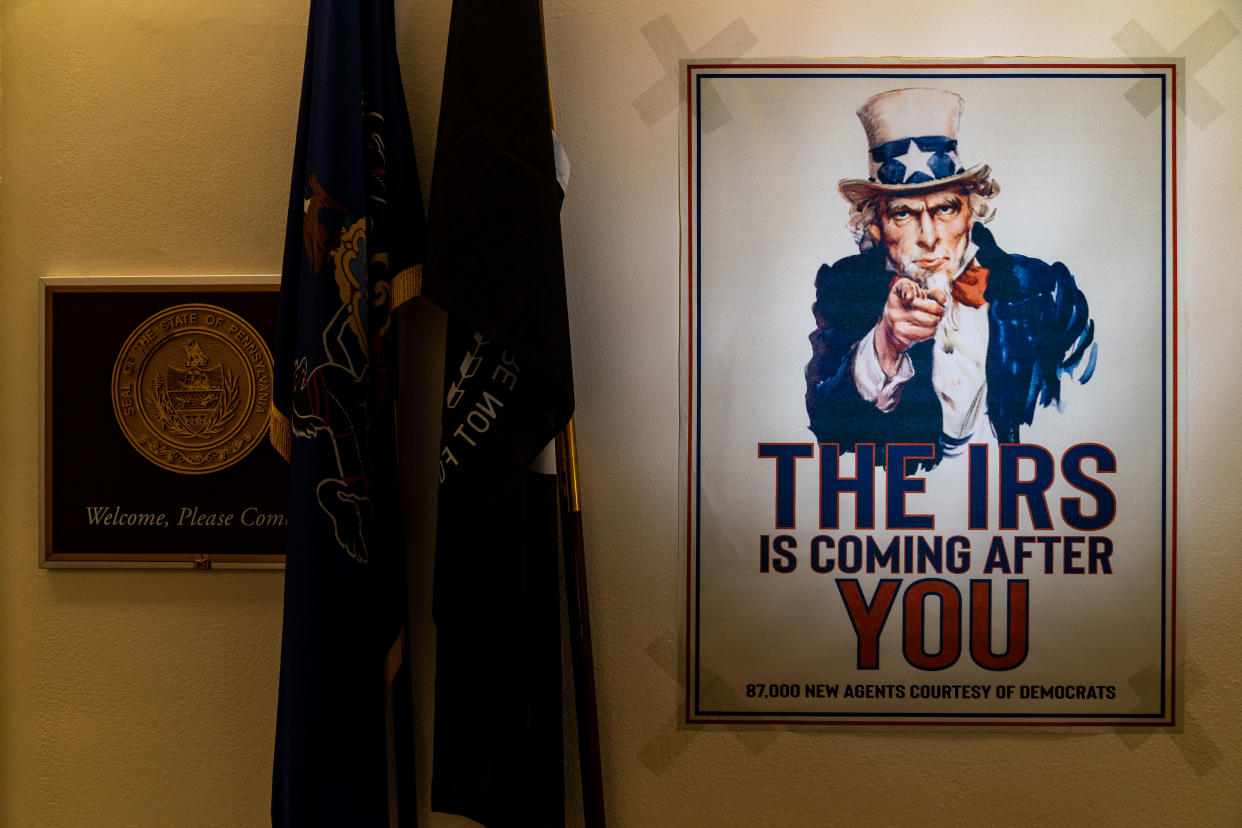Hello IRS? How billions of dollars changed calling the tax man in one year
The IRS is now answering the phone when you call.
That may seem like the lowest of bars to clear, but it was a task that the agency was consistently failing as recently as last year.
The changes come thanks to a wave of new funding, which was signed into law one year ago this week and was designed to usher in a decade-long transition at America’s tax collector. The tens of billions have begun to work and allowed the agency to hire 4,000 new customer service representatives this year alone.
However, more work remains. To mark the anniversary, Yahoo Finance embarked on a test and called the agency multiple times in recent weeks to get a sense of the experience for customers.
The results were mixed.
In one instance, we called to get information about the child tax credit. We were pleasantly surprised when a live agent picked up within 20 seconds. But in the end, we hung up in frustration after 40 minutes with our question unanswered.

The experience is not unique. Feedback from the American Institute of Certified Public Accountants (AICPA) shows that even once its members get through to the IRS, 38% said they didn't get an answer to what they needed. On top of that, over half still reported troubles getting through consistently during the recent busy tax season.
“So the numbers are mind boggling, right?,” Melanie Lauridsen, vice president of tax policy and advocacy at AICPA, said in a recent interview. “That speaks to the quality of the service of what you're getting.”
Others who interact with the IRS on a regular basis point out that the changes are at least a step in the right direction. Larry Pon, a CPA based in the San Francisco Bay Area, is thrilled by the shorter wait times, but agrees that the system remains far from perfect.
“It is hard to know which menu option to pick, so you end up getting transferred around,” he said recently, but added he is often able to get more concrete information now than in the past.
“Since I knew what I was looking for, they were able to assist me,” he said.
Changes ushered in by the Inflation Reduction Act
The experience for curious taxpayers, however frustrating, is still significant progress for a department that didn’t even answer up to 90% of calls in recent years.
A year ago, President Biden signed the Inflation Reduction Act into law, which is now being felt across the American economy from green energy to healthcare. Included in the massive bill was $80 billion in funding for the IRS that was approved in large part to fundamentally reshape the experience of interacting with the agency.
That influx of funds, which ended up being pared back in this spring’s debt ceiling deal, is also set to be used to catch more tax cheats, dig out of a sizable backlog of unprocessed returns, and update the agency’s often shockingly outdated technology.
But the customer service piece is what Commissioner Daniel Werfel and other officials have promised would be the easiest win and an area where the money would be most quickly felt.
As the one year anniversary of the law approaches on Aug. 16, that promise is coming to fruition. The overall satisfaction with IRS taxpayer service has dramatically increased. The level of satisfied members increased to 24% in 2023 from 7% last year, and the level of dissatisfied respondents dropped to 44% from 74%, according to the AICPA member survey.
“Those are real numbers, real swings,” Lauridsen said.
Treasury Secretary Janet Yellen, who oversees the IRS, recently traveled to an IRS paperless processing facility in Virginia to tout measures that show how service has improved. She said the agency was achieving its goal to “drastically transform the level of customer service that taxpayers can expect through the phone.”
She lauded an 87% response rate to taxpayer queries during the 2023 filing season, a more than fivefold increase from 2022. But the real headline grabber was the change in the IRS call waiting time, which was "cut to 3 minutes from 27 minutes," Yellen said.

Continued customer service issues
Yahoo Finance’s test confirmed that the wait times are indeed way down, but it also underlined an array of issues that remain.
Our 40-minute initial query on the child tax credit led to being transferred three times. We waited about 25 minutes to reach someone at the so-called general department that would answer taxpayer questions. However, the representative said he only specializes in the Affordable Care Act. We were then transferred to the child tax credit branch. But the agent there said we reached the incorrect department, and then patched us back to the main IRS phone line with an estimated wait time between 15 and 30 minutes.
A second attempt to get the same question answered was more successful. An agent picked up the phone almost immediately, and this time we were transferred twice before connecting with an agent who walked us through the instructions on the child tax credit tax form.
The agent said she is part of the Affordable Care Act tax team, and she was available to help us with our specific question about how to report the child tax credit if the parents were separated.
The total call time on the second try was 12 minutes.

Challenges still loom
Of course, if the agency can continue to make progress in the years ahead is an open question.
One clear challenge coming from Washington is whether these additional new funds will continue to be available in the years ahead as power changes hands.
For instance, soon after the last tax-filing season, the debt ceiling deal between President Biden and House Republicans clawed back about a quarter — or $21.4 billion — of the $80 billion that the agency had been counting on for the coming decade.
Republicans remain deeply critical of the new funding for the IRS, with Congressional Republicans putting forth proposals to roll it all back. The agency is also a regular target of derision on the 2024 campaign trail.
Aviva Aron-Dine, a deputy director of Biden’s National Economic Council, underscored in a recent call with reporters that the $21.4 billion in rescissions were part of a compromise and unfortunate in the administration’s view. But she nevertheless insisted that “the IRS will still be able to move forward” on its various priorities while warning that further cuts could be damaging to those efforts.

The IRS could also have a challenge in maintaining its response rate improvements if more people get word the phones are being answered and begin to call the agency in the years ahead.
In a recent report, National Taxpayer Advocate Erin Collins found that the rosy response rates from this recent filing season were at least in part due to a sharp drop in the number of calls that the agency is receiving.
"[the short wait times] are all great and positive things," Collin told Yahoo Finance, "but IRS does not have an enterprise-wise case management system. So as a customer service representative, you have to open one application close it out, open another application, close it out, and it's just clunky and not efficient."
"As a result that is causing challenges for getting taxpayers the right answer," Collins added.
The IRS received just 32 million calls in the first four months of 2023, down from over 73 million calls during the same period last year. The agency did answer more calls in total, picking up the phone 11 million times in that period this year, compared to just 7.5 million times in 2022.
“This is something we need to celebrate because we are moving in the right direction,” Lauridsen said, “But it has to continue, it can't just stop.”
Rebecca Chen is a reporter for Yahoo Finance and previously worked as an investment tax certified public accountant (CPA). Ben Werschkul is a Washington correspondent for Yahoo Finance.
Click here for politics news related to business and money
Read the latest financial and business news from Yahoo Finance
